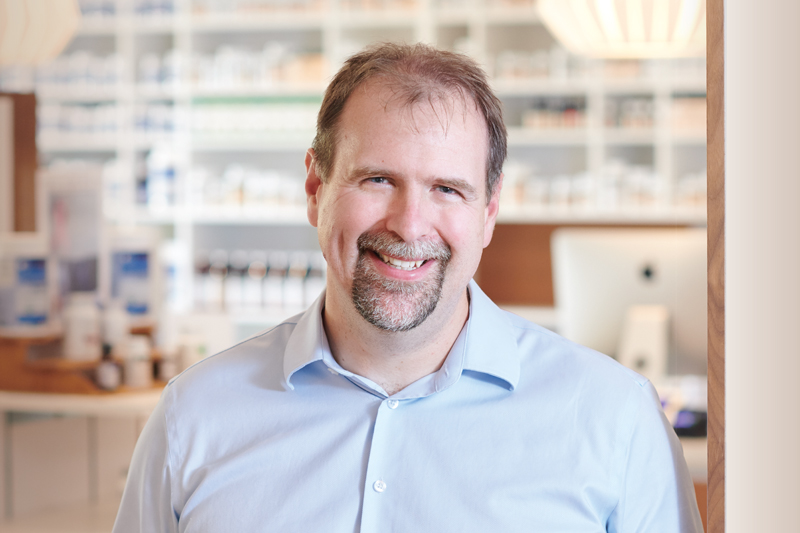Dr. Eric Marsden, ND
Class of 2002, CCNM - Toronto
Dr. Eric Marsden, ND (Class of 2002)
Clinic Director & Post-Graduate Residency Program Director, Marsden Centre of Naturopathic Excellence
ERIC’S DEFINITION OF DOCERE
It means everything! We know that knowledge is power. Our job as the naturopathic doctor is to provide caring, compassionate guidance and administration of therapeutics as appropriate. In the modern era where information is readily accessible, overwhelming, confusing, and conflicting, we must put this into a format that lets the patient feel confident in their treatment decisions. We have a responsibility in our oath to not just care for our patients, but to help future generations. And I think that’s critical and even more critical now.
It means everything! We know that knowledge is power. Our job as the naturopathic doctor is to provide caring, compassionate guidance and administration of therapeutics as appropriate. In the modern era where information is readily accessible, overwhelming, confusing, and conflicting, we must put this into a format that lets the patient feel confident in their treatment decisions. We have a responsibility in our oath to not just care for our patients, but to help future generations. And I think that’s critical and even more critical now.
***
Eric’s motivation to host two-year residencies at his practice, the Marsden Centre of Naturopathic Excellence (MCNE), was inspired by sharing what he had learned while working in clinics throughout the world, particularly in the fields of environmental medicine and integrative cancer care.
Eric’s motivation to host two-year residencies at his practice, the Marsden Centre of Naturopathic Excellence (MCNE), was inspired by sharing what he had learned while working in clinics throughout the world, particularly in the fields of environmental medicine and integrative cancer care.
“I realized that imparting this knowledge – through education, in-depth training, and mentorship – is valuable in really advancing the skills of graduating naturopathic doctors,” Eric says
Since he began hosting residencies over 10 years ago, he has restructured the teaching components to align with the evolution of integrative cancer care. Eric explains that a set of learning modules, delivered in both online and in-person training sessions, underscores the first year of the residency. Over time, the resident gradually moves into patient care, case management, and research.
At any given time, there are two residents at MCNE – one in their first year, and one in their second.
“We have a large number of graduates from the residency program who work with us and are involved in the education of other residents. So they mentor the senior resident, who in turn mentors the junior resident,” he states. “We also have a nurse practitioner and a registered acupuncturist with us that allows for a greater breadth of both scope and patient care. This introduces residents to all sorts of interprofessional collaborations, which is great.”
The benefits of residencies extend far beyond mentorship, though. Most graduates are eager to start their practices and perhaps underestimate the usefulness of a residency, but Eric urges new NDs to consider applying for one or spend time externing.
“We sponsored the grad dinner last year, and in my speech – I got more groans than cheers – I said, ‘I spent more money on my education after CCNM than at CCNM.’ That’s really your investment – the more you delve into health care, the more you grow as a practitioner.”
Eric says that he knows more about naturopathic medicine and his abilities as a health-care provider than he did when he graduated 17 years ago. Much of that has to do with expanding his own knowledge base by spending time with and learning from the leaders in the profession.
An ND’s job is to provide knowledge that empowers others to understand and embrace it, he says. That includes patients, the broader health-care community, and members of the naturopathic profession.
This article was originally published in issue #26, Mind|Body|Spirit, Winter 2020, page 16
